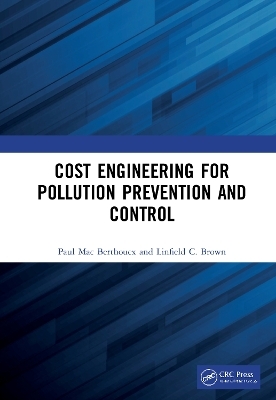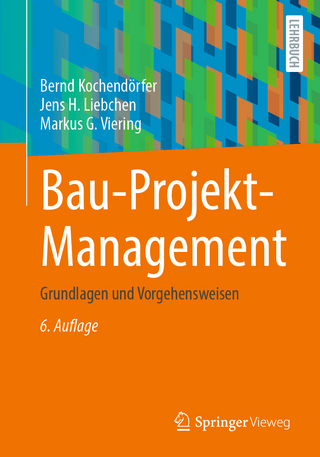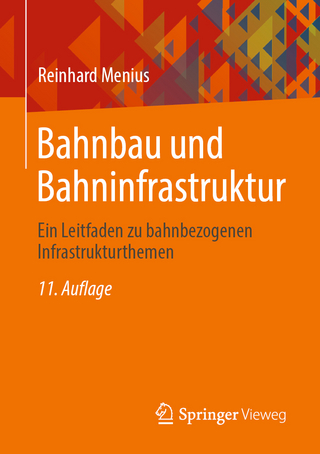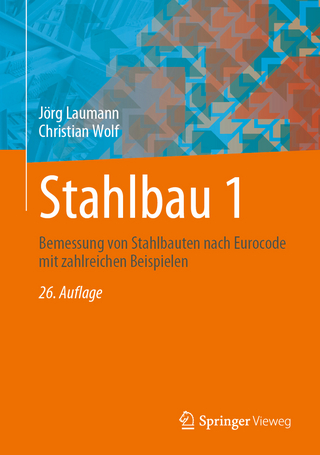
Cost Engineering for Pollution Prevention and Control
CRC Press (Verlag)
978-0-367-71060-6 (ISBN)
Environmental engineers work to increase the level of health and happiness in the world by designing, building, and operating processes and systems for water treatment, water pollution control, air pollution control, and solid waste management. These projects compete for resources with projects in medicine, transportation, education, and other fields that have a similar objective. The challenge is to make the investments efficient – to get the best project outputs with a minimum of inputs. Cost Engineering for Pollution Prevention and Control examines how to identify the best solution by judging alternatives with respect to some measure of system performance, such as total capital cost, annual cost, annual net profit, return on investment, cost-benefit ratio, net present worth, minimum production time, maximum production rate, minimum energy utilization, and so on.
Key Features:
Explains how to estimate preliminary costs, how to compare the life cycle costs of alternative projects, how to find the optimal balance between capital costs and operating costs.
Emphasis is placed on formulating the problem rather than on the mathematical details of how the calculations are done.
Provides numerous practical examples and case studies.
Includes end-of-chapter exercises dealing with water, wastewater, air pollution, solid wastes, and remediation projects.
The important concepts presented in this book can be understood by those students who have taken an introductory course in environmental engineering. Advanced knowledge of process design is not required. The material can also be utilized by engineers, managers, and others who would benefit from a better understanding of how engineers look at problems.
Paul Mac Berthouex is Emeritus Professor of civil and environmental engineering at The University of Wisconsin-Madison, where he worked for 29 years. Awards and honors include the Rudolph Hering Medal (1975 and 1995) from ASCE, and Harrison Prescott Eddy Medal (1971) from the WPCF, and the Radebaugh Award (189 and 1991) from the Central States WPCA. He is a member of the University of Iowa Distinguished Alumni Academy. Work experience includes Chief Research Engineer for GKW Consult, (Mannheim. Germany), consultant to UNDP, UNESCO, WHO, and TVA, project manager of Asian Development Bank Projects in Korea and Indonesia, treatment plant design in Nigeria and Samoa, visiting professor in England, Denmark, New Zealand, Taiwan, Singapore, India, and Indonesia. He is co-author of eight books, 200 papers and technical reports, and was graduate advisor to almost 100 graduate students. Linfield C. Brown is Emeritus Professor and former chairman of civil and environmental engineering at Tufts University. He taught courses on water quality modeling, water and wastewater chemistry, industrial waste treatment, and engineering statistics, and was the recipient of the prestigious Lillian Liebner and Seymour Simches Awards for excellence in teaching and advising. He has served as consultant to the U.S. Environmental Protection Agency and the National Council for Air and Stream Improvement. He is the author or co-author of over 60 technical papers and reports, has offered over two dozen workshops in the US, Spain, Poland, England, and Hungary on water quality modeling with QUAL2E, and is the co-author of five books on statistics and pollution prevention and control.
1. An Introduction to Cost Engineering. 2. Defining the Engineering Problem. 3.Planning for the Future. 4. Capital Cost Estimates. 5. Operating Costs. 6. Cost Indexes. 7. Economy of Scale. 8. The Time Value of Money. 9. Depreciation and Asset Valuation. 10.Financing Capital Costs. 11. Financial Management for Operations. 12. Utility Service Revenues and Rate Making. 13. Financial Management for Engineering Projects.14.Optimization of Linear Models. 15. Optimization of Nonlinear Problems. 16. Building and Fitting Statistical Models. 17. Experimental Methods for Engineering Optimization.18. Designing under Uncertainty. 19. Monte Carlo Simulation. 20. Designing for Safety and Reliability. 21. References and Recommended Reading. 22. Appendix A- Staged Construction for Linear Growth. 23. Appendix B – Economy of Scale Factors. 24. Appendix C - Factors for Economic Calculation. 25. Appendix D - Interpreting the LINGO Solution Report. 26. Appendix E – Generating Random Numbers in Excel. Index.
| Erscheinungsdatum | 17.05.2021 |
|---|---|
| Zusatzinfo | 332 Tables, black and white; 161 Illustrations, black and white |
| Verlagsort | London |
| Sprache | englisch |
| Maße | 178 x 254 mm |
| Gewicht | 1029 g |
| Themenwelt | Technik ► Bauwesen |
| Technik ► Umwelttechnik / Biotechnologie | |
| ISBN-10 | 0-367-71060-9 / 0367710609 |
| ISBN-13 | 978-0-367-71060-6 / 9780367710606 |
| Zustand | Neuware |
| Informationen gemäß Produktsicherheitsverordnung (GPSR) | |
| Haben Sie eine Frage zum Produkt? |
aus dem Bereich


